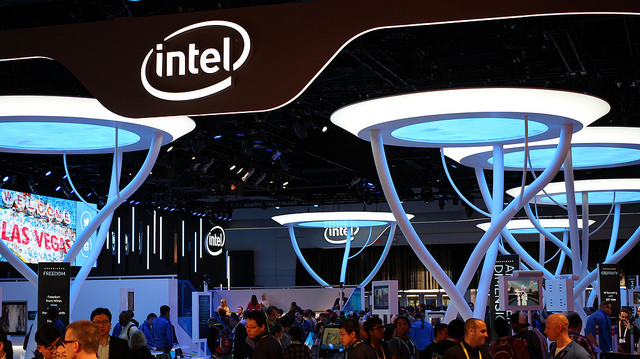 NEWS
NEWS
 NEWS
NEWS
 NEWS
NEWS
Intel has finally sealed its $16.7 billion acquisition of programmable chip maker Altera Corp., saying the deal will provide an enormous boost to its efforts in the data center, intelligent systems and the Internet of Things.
“Altera is now part of Intel,” said Intel’s CEO Brian Krzanich confirmed in a statement.
Altera will be reorganized into a new business unit called the Programmable Solutions Group, to be led by ex-Altera executive Dan McNamara.
Intel concluded the deal seven months after it first said it was going to acquire San Jose-based Altera. Intel bought the company primarily to get its hands on Altera’s “Field Programmable Gate Arrays (FPGAs)”, which are becoming increasingly popular for use in servers to perform certain tasks.
Krzanich said in a statement that Altera’s technology would be combined with Intel’s own to create chips with greater capabilities.
“We will apply Moore’s Law to grow today’s FPGA business, and we’ll invent new products that make amazing experiences of the future possible—experiences like autonomous driving and machine learning,” Krzanich said.
FPGAs differ from traditional chips in that they can be programmed and reprogrammed using software. They’re becoming increasingly popular as “accelerators” in cloud computing and Web-scale environments. Traditionally, the High-Performance Computing (HPG) sector used accelerators such as GPUs to boost performance while limiting power consumption. But newer workloads like data analytics and embedded systems demand even faster processing, more flexibility and quicker results, and that’s led to greater demand for FPGAs across the data center.
It’s hoped that new Intel chips powered with Altera FPGAs will arrive early in 2016. The plan is to offer Altera FFPGA chips with Intel’s XEON processors in customizable combinations, officials said. Intel officials also said they plan to continue the work Altera was doing on FPGAs for ARM-based systems-on-a-chip (SoCs), which are still in development.
According to McNamara, the combination of Intel’s elite semiconductor manufacturing abilities and Altera’s FPGA tech will allow the newly merged companies to build “the next generation of electronic systems”.
Support our mission to keep content open and free by engaging with theCUBE community. Join theCUBE’s Alumni Trust Network, where technology leaders connect, share intelligence and create opportunities.
Founded by tech visionaries John Furrier and Dave Vellante, SiliconANGLE Media has built a dynamic ecosystem of industry-leading digital media brands that reach 15+ million elite tech professionals. Our new proprietary theCUBE AI Video Cloud is breaking ground in audience interaction, leveraging theCUBEai.com neural network to help technology companies make data-driven decisions and stay at the forefront of industry conversations.